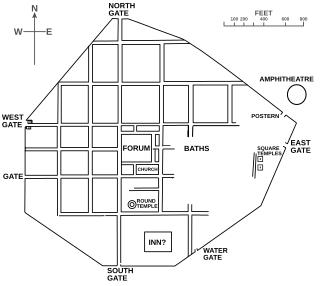Historiography

The civitas bocchoritana, i.e., Bocchoris, is unique in the island of Majorca. Evidence that it once was a federated city is sensu stricto confirmed by juridic epigraphy, in the form of two different tabulae patronatus. Pliny the Elder also listed Bocchoris among the federated cities, in his book Naturalis Historia , III, 77–78 in the 1st century BC:
The Baleares, so formidable in war with their slingers, have received from the Greeks the name of Gymnasiæ. The larger island is 100 miles in length, and 475 in circumference. It has the following towns; Palma and Pollentia, enjoying the rights of Roman citizens, Cinium and Tucis, with Latin rights; and Bocchorum was a federate town. [3]
Near the ruins of Bocchoris, two bronze inscriptions were found, dating back to the years 10 BC and 6 AD. One inscription, found in the Bay of Pollença in 1951, and dating to 10 BC, mainly stated that Bocchoris' patron was Marcus Crassus, Roman consul in 14 BC. The whole text in Latin, as written in the inscription, is as follows:
(Iullo Ant)onio Fabio Africano | a(nte) d(iem) XVII k(alendas) Apriles | Civitas Bochoritana ex | insula Baliarum Maiorum | patronum cooptavit M. | Crassum Frugi leiberos | posterosque eius. | M. Crassus Frugi eos in | suam suorumque | clientelam recepit. Egerunt C. Coelius C. F. et | C. Caecilius T. F. legati
The other tabula patronatus was discovered much earlier, in 1765. [4] According to this bronze inscription, dating to 6 AD, the Senate and the people of Bocchoris selected by mutual consent the Roman Senator Marcus Atilius Vernus as their patron. In Latin, it says:
M. Aemilio Lepido, L. Arruntio | co(n)s(ulibus) k(alendis) Mais. | Ex insula Baliarum Maiore senatus | populusque Bocchoritanus M. Atilium M. F. Gal(eria) Vernum patronum coopata | verunt | M. Atilius M. F. Gal(eria) Vernus senatum | populusque Bochoritanum in fidem | clientelamque suam suorumque recepit. | Egerunt Q. Caecilius Quintus | C. Valerius Icesta praetores












